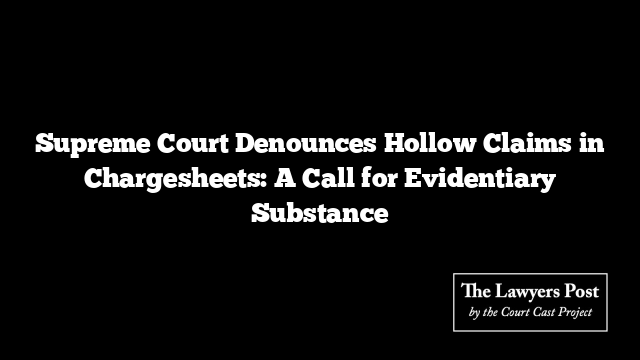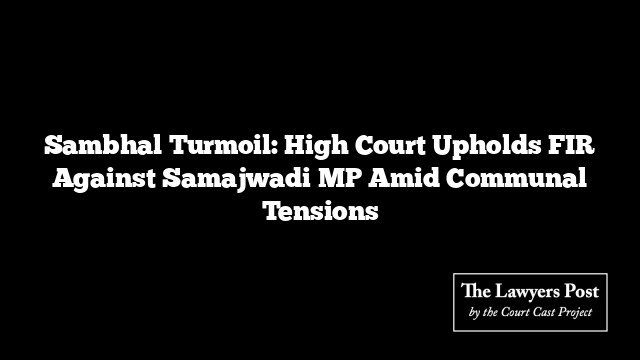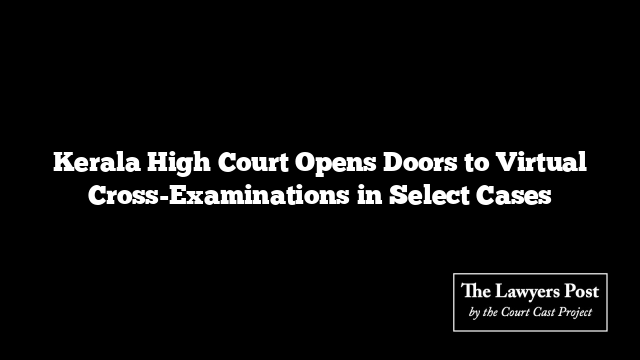The Supreme Court has firmly reiterated that chargesheets cannot hinge on vague or unsubstantiated claims of connivance, emphasizing the necessity of credible evidence to substantiate allegations.
A bench comprising Justices C.T. Ravikumar and Sanjay Karol underscored this principle while addressing an appeal against a 2017 Madhya Pradesh High Court order. The High Court had denied quashing an FIR registered under several sections of the Indian Penal Code, including cheating, forgery, and conspiracy, concerning an alleged fraudulent property registration scheme.
Key Observations from the Supreme Court
The Court clarified that if intent is demonstrably absent in one alleged offence within a transaction, it cannot be presumed for other connected offences. Addressing the case specifics, the Court found no substantive evidence tying the accused, a Housing Board official, to the alleged forgery or fraudulent acts.
The appellant had contended that his actions were conducted within the purview of his official duties, invoking protection under Section 83 of the Madhya Pradesh Girha Nirman Mandal Adhiniyam, 1972, akin to Section 197 of the Criminal Procedure Code. The Supreme Court concurred, noting that the absence of even prima facie evidence of intent or knowledge negated the possibility of a criminal conspiracy.
Legal Precedents Highlighted
The bench referred to landmark rulings, including State of Haryana v. Bhajan Lal (1992) and Vijay Kumar Ghai v. State of West Bengal (2022), to underscore the stringent requirements for establishing offences like cheating and conspiracy. For cheating, the Court reiterated that false representation, prior knowledge of its falsity, and a dishonest intention to deceive are essential elements—none of which were evident in this case.
Similarly, for conspiracy, the Court cited Bilal Hajar v. State (2019), emphasizing that a “meeting of minds” to commit an illegal act must be demonstrable.
Outcome
The Supreme Court concluded that the High Court erred in refusing to quash the criminal proceedings. It ruled that in the absence of intent or actionable evidence, the FIR did not meet the threshold for prosecution, leading to its dismissal.
This judgment reinforces the principle that allegations must be rooted in substantive evidence rather than speculative or baseless claims, serving as a reminder of the judiciary’s role in upholding fairness and due process.





